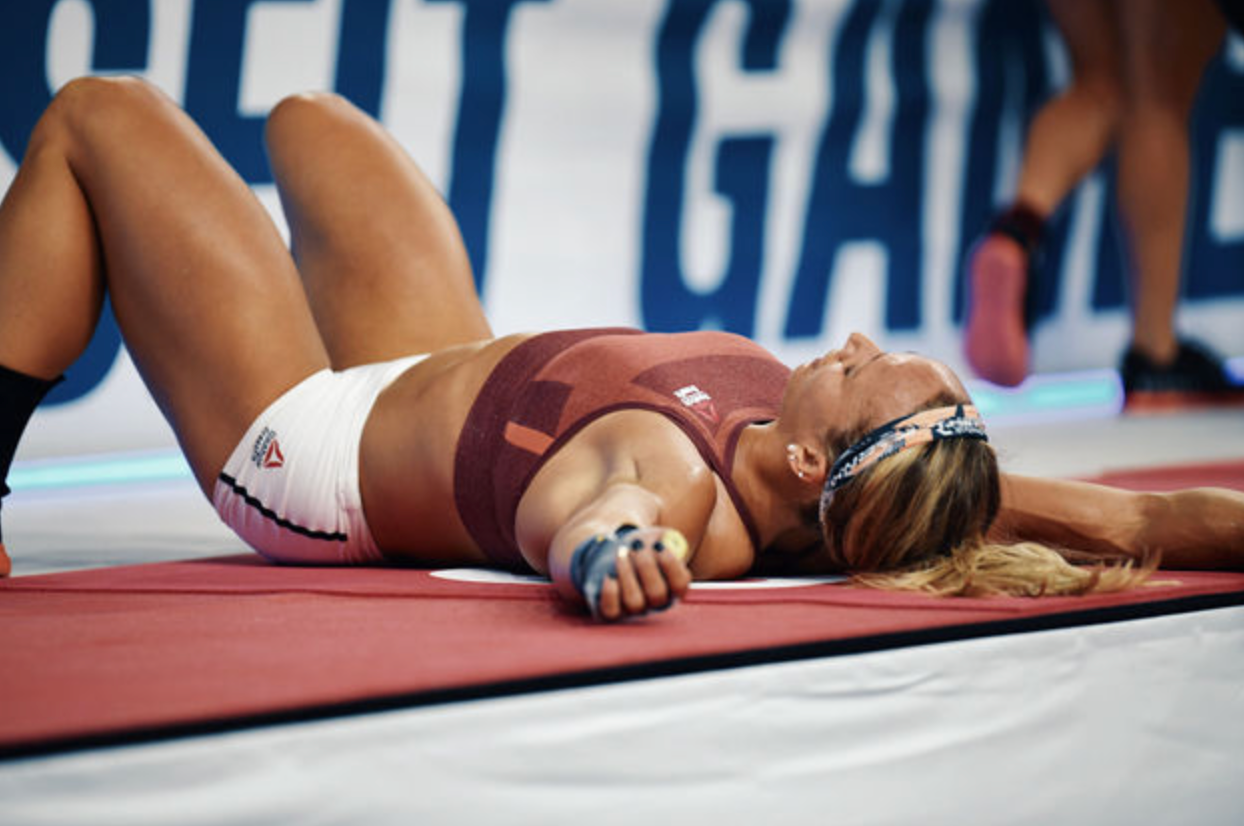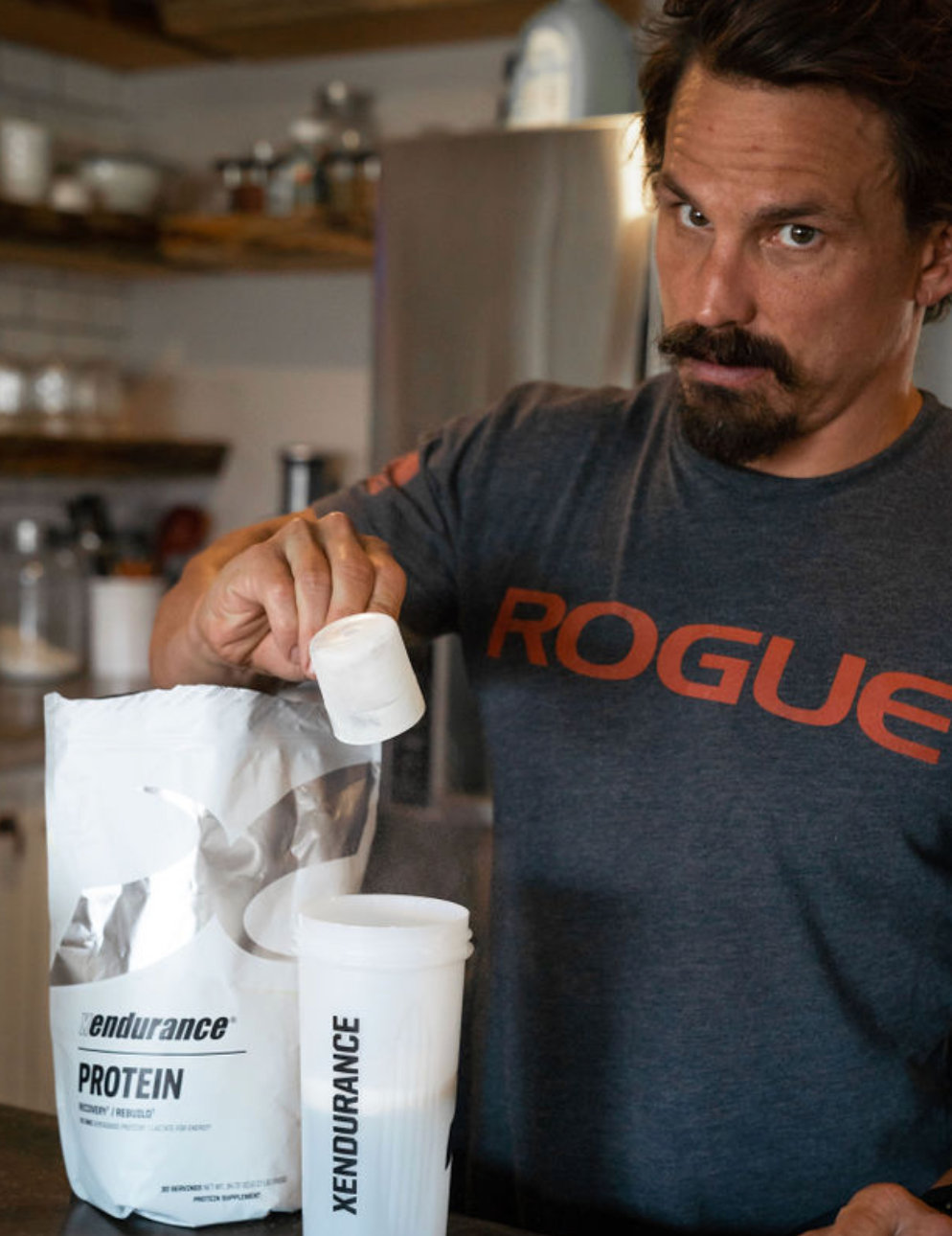You're committed, driven, and have your eyes set on those fitness goals. Whether you're training for a marathon, looking to lift heavier weights, or diving into the intense world of CrossFit, there's one crucial element that often gets overlooked: rest days. The mantra of “more is better” is a common misconception in the world of fitness. While consistent effort and pushing your boundaries are commendable, it's essential to understand why rest days are just as crucial as training days.
The Science Behind Rest Days
Taking a cue from David Goggins, even the toughest among us need a day to recuperate.
The body undergoes significant physiological stress during training. Whether it's the microtears in muscles from weightlifting, the cardiovascular demands of endurance training, or the full-body exhaustion from high-intensity exercises like CrossFit, your body is working hard. But here's the catch: the adaptations you desire, from muscle growth to improved cardiovascular efficiency, don't occur during the activity itself, but rather during the recovery that follows.
In a nutshell, training provides the stimulus, while rest days allow the body to execute the desired adaptations, a process known as super-compensation. During super-compensation, the body not only repairs but also strengthens itself to handle future stressors better. Without proper rest, however, the body doesn't get a chance to go through this vital process.
The East German Philosophy: Rest is Vital
In 1979, the first US American Bobsled Team was invited to train in Oberhof, East Germany. At the time, the East Germans were crushing the rest of the world with Gold Medals and World Records.
The Oberhof Bobsled course happened to be the toughest in the world back in the 70’s and so it was an honor to be asked to slide on it. Sandy Kellin, the pilot of the 2-man bobsled who was fortunate to race on this course was able to get insight into the East German training methods.
The East German Coach said they trained 3 days on, 2 days off, then 3 days on, and 2 days off, consistently. This did not register at all with the “Train Until You Drop” attitude of most US athletes at the time. His reasoning was REST IS VITAL to recovery and performance.
CrossFit: A Case Study in Intensity
To understand the importance of rest days, let's dive deeper into another sport, CrossFit, an increasingly popular high-intensity workout regimen. CrossFit incorporates various training modalities, from Olympic weightlifting to aerobic exercises and calisthenics. The varied, intense nature of CrossFit can place a considerable strain on the body.
While specific clinical studies directly assessing the optimal rest days for CrossFit athletes were limited up to 2021, principles from related research offer valuable insights. Here are some takeaways:
- 48 Hours of Recovery: High-intensity interval training, akin to many CrossFit workouts, places substantial stress on muscles and energy systems. A body typically requires around 48 hours to repair and adapt, ensuring it's primed and ready for the next session. (Does anyone know a CrossFit athlete that actually rests for 48 hours?)
- Sleep is Non-Negotiable: Athletes, especially those participating in strenuous workouts like CrossFit, need adequate sleep. Sleep plays a pivotal role in muscle repair, cognitive processes, and overall recovery. Aim for 7-9 hours of quality sleep per night. Remember, it's not just about the quantity but the quality of sleep.
- Embrace Active Recovery: The concept of rest doesn't always mean lying on the couch all day. Engaging in light activities, known as active recovery, can be beneficial. Think along the lines of a leisurely walk, stretching, or a relaxed swim. These activities can aid in blood circulation, helping deliver essential nutrients to muscles and speeding up the recovery process.
- Beware of Overtraining: Ignoring the signs your body gives and pushing through can lead to overtraining syndrome, characterized by persistent fatigue, a decrease in performance, sleep disturbances, and a higher risk of injury.
How Much Rest Is Needed as a Runner?
As a runner, your required rest and recovery time will depend on the intensity and volume of your running, your overall fitness level, and your specific training goals.
For recreational runners who jog a few times a week at a moderate pace, one to two rest days per week should suffice. On the other hand, competitive runners who are logging higher mileage or doing intense speed work may require more recovery time.
It's common for competitive runners to have one day of complete rest per week. They may also incorporate lower-intensity and shorter-duration runs into their weekly routine, often known as "recovery runs," which allow active recovery without completely ceasing activity.
Runners training for specific events like a marathon often follow a tapering period in the weeks leading up to the race. This period involves reducing mileage and intensity to allow the body to fully recover and prepare for the race day.
Age also plays a role in recovery for runners. Younger runners may bounce back faster, while older runners might need more time for their bodies to recover.
Remember, recovery isn't just about time off from running. It also includes adequate sleep, proper nutrition, hydration, and practices like stretching, foam rolling, or even cross-training activities that can help promote recovery and prevent injuries. Persistent fatigue, lingering muscle soreness, mood changes, and decreased performance can all be signs of inadequate recovery or overtraining - and rest may be the solution.

Listening to Your Body
Each individual's need for rest and recovery is different. Factors like age, training intensity, fitness level, and even genetics play a role. It's crucial to be in tune with your body. Persistent muscle soreness, unexplained mood swings, interrupted sleep patterns, or a plateau in performance are some signs indicating you might need more rest.
Remember, taking a rest day is not an admission of weakness or lack of commitment. Instead, it's recognizing that the body, like any finely-tuned machine, requires regular maintenance to function at its best. Rest is the equivalent of recharging your phone's battery.
Resting the Right Way
Rest is not merely about ceasing all physical activity. Active recovery, like light stretching, walking, or gentle yoga, can help promote blood flow and accelerate the recovery process. Hydration and nutrition also play a key role in recovery. Consuming a balanced diet, rich in protein, carbs, and healthy fats, supports muscle repair and energy replenishment.
Finally, mental rest is just as important as physical rest. Activities like meditation or simply spending time with loved ones can help reduce stress levels, promoting overall well-being and better recovery.
The Balanced Approach
If you're planning your training regimen, be it CrossFit, marathon training, or any other form of exercise, integrate rest days into your schedule. It's not just about going hard on training days but also about allowing your body the downtime it requires.
In the long run, those who understand the significance of rest days and incorporate them wisely stand to gain more. They not only enhance their performance but also reduce the risk of injuries and ensure they're mentally and physically fresh for each training session.
Summing Up: The Unbeatable Value of Downtime
Fitness is a journey, not a destination. Every athlete strives for the podium or medal but it's a blend of hard work, consistency, and understanding the nuances of your body. While pushing your limits and breaking personal records is thrilling, so is recognizing the profound role rest plays in that journey. By embracing rest days, you're not holding back; you're strategically propelling yourself forward. Train smart, rest well, and witness the magic of super-compensation in action!









コメントを書く
このサイトはhCaptchaによって保護されており、hCaptchaプライバシーポリシーおよび利用規約が適用されます。